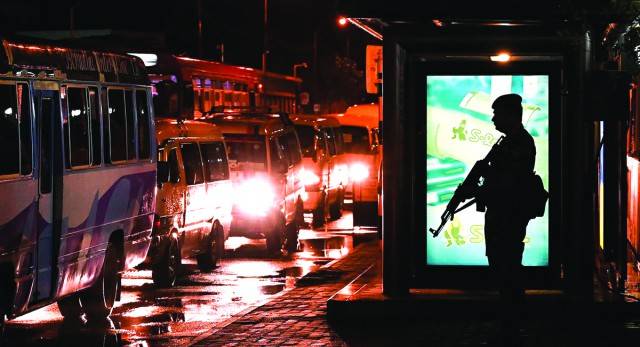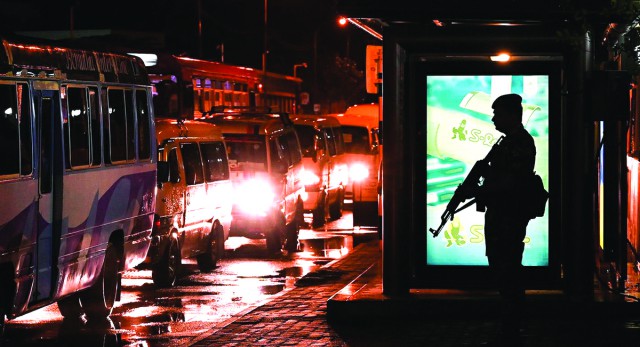
Even though three of the 10 most-affected countries by terrorism in 2019 were South Asian, (such as Afghanistan, Pakistan and India) anti-state violence has declined across the region. The first decade of the new millennia was marked by the rise of anti-state rebellions in South Asia. Yet, in 2020, the South Asian states, sans Afghanistan, have decimated, weakened, or demobilized most of the insurgent and terrorist networks marking the states’ coercive triumph. However, the underlying factors contributing to anti-state violence in South Asia not only persist, but seem to have worsened.
While Afghanistan was the worst-hit country by terrorism in 2019, over-taking Iraq, the decline in insurgent violence continued for the fifth consecutive year. Compared to 2018, Afghanistan’s insurgent attacks and resultant killings in 2019 fell by 16.7 and 22.4 percent, respectively. Likewise, terrorism in Pakistan fell to the pre-2006 levels due to successful counterterrorism operations in the northwestern tribal regions and southwestern Balochistan province. Of the 37 terrorist groups active in Pakistan in 2015, only ten were functional in 2019.
Similarly, India has overcome the multifaceted internal threats from Kashmir to Assam and the Naxal insurgency in the so-called red-corridor to the frustrating Al-Qaeda and the Islamic State (IS)’s attempts to grow. Financial constraints, aging leadership and factional fighting, have crippled the Naxal insurgency. Likewise, the deployment of additional troops following the revocation of Kashmir’s semi-autonomous status and the Financial Action Task Force’s pressure on Pakistan has weakened Kashmir-focused militant groups, such as Harkat-ul-Mujahideen, Jaish-e-Muhammad and Lashkar-e-Taiba.

In Bangladesh, after the devastating 2016 Holey Artisan Bakery attack, the Bangladeshi law enforcement agencies have successfully neutralised numerous terrorist networks, particularly the Jamaat-ul-Mujahideen Bangladesh. Ever since, no high-profile terrorist attack has been reported in Bangladesh. In Sri Lanka, since the brutal crushing of the Tamil Tigers in 2009, the downward trajectory of anti-state violence has continued, notwithstanding the 2019 IS-directed Easter bombings. Nepal’s Maoist insurgency, which was pacified in the mid-2000s, has been incorporated into its new political system.
Arguably, three factors have contributed to declining anti-state violence in South Asia.
First, increased security spending and enhanced operational capabilities of major South Asian nations in countering terrorism and insurgencies. Likewise, the training and cooperation of South Asian states with the West has also helped them in improving their internal security environments. Furthermore, various South Asian countries have set up counter-terrorism units and promulgated laws and policies to prevent anti-state violence.
Second, better surveillance mechanisms have improved the states’ operational responses against the insurgent and terrorist networks. The bilateral and multilateral intelligence collaborations and technological advancements in reconnaissance have played a critical role in providing accurate and actionable information in pre-empting and countering terrorist threats.
Finally, the precision and lethality of new weapon systems have also given South Asian states a coercive edge over the insurgent and terrorist groups.
Weakening democratic governance and slowing economies due to the Covid-19 pandemic will shake the South Asia populations’ confidence in their respective governments. The inability of the South Asian governments to provide employment to their respective populations in the post-Covid-19-scenario would further complicate this predicament. In turn, this could contribute to rise in anti-state sentiments. The pre-Covid-19 exclusionary policies, political populism, and religious polarization have compounded marginalized South Asian communities’ grievances.
For instance, the Hindu nationalist Bharatiya Janata Party government’s unilateral revocation of Kashmir’s semi-autonomous status, subsequent bifurcation into two union territories, arbitrary arrests and suspension of the basic liberties have alienated the Kashmiris. Though the Indian state is powerful enough to contain the dissenting voices and keep the militant violence in check, such high-handedness will keep the Kashmir conflict simmering. Simultaneously, the passage of the controversial Citizenship Amendment Act in 2019 that discriminates against India’s Muslim community has sowed the seeds of a potential communal conflict. This will also allow Al-Qaeda and the Islamic State opportunities to exploit these communal fissures for recruitment and plotting attacks.
Similarly, the onset of the China Pakistan Economic Corridor (CPEC), the flagship project of the Belt and Road Initiative, and the accompanying Pakistani military’s footprint in the mineral-rich Balochistan has accentuated the grievances of the local communities. The Baloch fear becoming a minority in their own province and being left behind in the development process due to the manner in which CPEC projects have been conceived and implemented. Pakistani state’s high-handedness and non-participatory approach to Balochistan’s development, among other factors, has stoked the flames of the current insurgent wave. Resultantly, the Baloch insurgents view China as a neo-colonial power, which in collusion with the Pakistani military establishment, is depriving them of their resources.
The post-war Sinhala-Buddhist nationalism in Sri Lanka has strained the communal and ethnic ties in the country. For instance, the harassment of the Muslim community, 10 percent of Sri Lanka’s population, in the aftermath of the 2019 Easter bombing and destruction of Muslim businesses and residential properties have deepened the communal schisms. The Buddhist extremist group the Bodu Bala Sena, involved in most of these incidents, has the covert political backing of Sri Lankan authorities. Furthermore, the controversial decision to cremate the Sri Lankan Muslims dying of Covid-19, in violation of the World Health Organisation’s guidelines, has added to the Muslim community’s marginalisation.
Likewise, Bangladesh’s de-facto one-party democratic rule, the controversial war trials of Jamaat-e-Islami leaders and political repression of the main opposition party, the Bangladesh National Party, as well as the ham-fisted muzzling of the dissenting voices can potentially undermine Bangladesh’s positive security outlook.
The current security situation in South Asia is akin to absence of violence rather than the prevalence of comprehensive peace. To sustain the existing security gains into long-term political advantages, the South Asian states would have to address the underlying causes of the intra-state conflicts. Given the South Asian region’s heterogeneous ethnic and religious composition, religious pluralism, political accommodation and social inclusion under the democratic frameworks offer the best conflict resolution template.
The author is a research fellow at the S. Rajaratnam School of International Studies (RSIS), Singapore. He tweets at @basitresearcher

While Afghanistan was the worst-hit country by terrorism in 2019, over-taking Iraq, the decline in insurgent violence continued for the fifth consecutive year. Compared to 2018, Afghanistan’s insurgent attacks and resultant killings in 2019 fell by 16.7 and 22.4 percent, respectively. Likewise, terrorism in Pakistan fell to the pre-2006 levels due to successful counterterrorism operations in the northwestern tribal regions and southwestern Balochistan province. Of the 37 terrorist groups active in Pakistan in 2015, only ten were functional in 2019.
Similarly, India has overcome the multifaceted internal threats from Kashmir to Assam and the Naxal insurgency in the so-called red-corridor to the frustrating Al-Qaeda and the Islamic State (IS)’s attempts to grow. Financial constraints, aging leadership and factional fighting, have crippled the Naxal insurgency. Likewise, the deployment of additional troops following the revocation of Kashmir’s semi-autonomous status and the Financial Action Task Force’s pressure on Pakistan has weakened Kashmir-focused militant groups, such as Harkat-ul-Mujahideen, Jaish-e-Muhammad and Lashkar-e-Taiba.

In Bangladesh, after the devastating 2016 Holey Artisan Bakery attack, the Bangladeshi law enforcement agencies have successfully neutralised numerous terrorist networks, particularly the Jamaat-ul-Mujahideen Bangladesh. Ever since, no high-profile terrorist attack has been reported in Bangladesh. In Sri Lanka, since the brutal crushing of the Tamil Tigers in 2009, the downward trajectory of anti-state violence has continued, notwithstanding the 2019 IS-directed Easter bombings. Nepal’s Maoist insurgency, which was pacified in the mid-2000s, has been incorporated into its new political system.
Arguably, three factors have contributed to declining anti-state violence in South Asia.
First, increased security spending and enhanced operational capabilities of major South Asian nations in countering terrorism and insurgencies. Likewise, the training and cooperation of South Asian states with the West has also helped them in improving their internal security environments. Furthermore, various South Asian countries have set up counter-terrorism units and promulgated laws and policies to prevent anti-state violence.
Second, better surveillance mechanisms have improved the states’ operational responses against the insurgent and terrorist networks. The bilateral and multilateral intelligence collaborations and technological advancements in reconnaissance have played a critical role in providing accurate and actionable information in pre-empting and countering terrorist threats.
Finally, the precision and lethality of new weapon systems have also given South Asian states a coercive edge over the insurgent and terrorist groups.
Weakening democratic governance and slowing economies due to the Covid-19 pandemic will shake the South Asia populations’ confidence in their respective governments. The inability of the South Asian governments to provide employment to their respective populations in the post-Covid-19-scenario would further complicate this predicament. In turn, this could contribute to rise in anti-state sentiments. The pre-Covid-19 exclusionary policies, political populism, and religious polarization have compounded marginalized South Asian communities’ grievances.
For instance, the Hindu nationalist Bharatiya Janata Party government’s unilateral revocation of Kashmir’s semi-autonomous status, subsequent bifurcation into two union territories, arbitrary arrests and suspension of the basic liberties have alienated the Kashmiris. Though the Indian state is powerful enough to contain the dissenting voices and keep the militant violence in check, such high-handedness will keep the Kashmir conflict simmering. Simultaneously, the passage of the controversial Citizenship Amendment Act in 2019 that discriminates against India’s Muslim community has sowed the seeds of a potential communal conflict. This will also allow Al-Qaeda and the Islamic State opportunities to exploit these communal fissures for recruitment and plotting attacks.
Similarly, the onset of the China Pakistan Economic Corridor (CPEC), the flagship project of the Belt and Road Initiative, and the accompanying Pakistani military’s footprint in the mineral-rich Balochistan has accentuated the grievances of the local communities. The Baloch fear becoming a minority in their own province and being left behind in the development process due to the manner in which CPEC projects have been conceived and implemented. Pakistani state’s high-handedness and non-participatory approach to Balochistan’s development, among other factors, has stoked the flames of the current insurgent wave. Resultantly, the Baloch insurgents view China as a neo-colonial power, which in collusion with the Pakistani military establishment, is depriving them of their resources.
The post-war Sinhala-Buddhist nationalism in Sri Lanka has strained the communal and ethnic ties in the country. For instance, the harassment of the Muslim community, 10 percent of Sri Lanka’s population, in the aftermath of the 2019 Easter bombing and destruction of Muslim businesses and residential properties have deepened the communal schisms. The Buddhist extremist group the Bodu Bala Sena, involved in most of these incidents, has the covert political backing of Sri Lankan authorities. Furthermore, the controversial decision to cremate the Sri Lankan Muslims dying of Covid-19, in violation of the World Health Organisation’s guidelines, has added to the Muslim community’s marginalisation.
Likewise, Bangladesh’s de-facto one-party democratic rule, the controversial war trials of Jamaat-e-Islami leaders and political repression of the main opposition party, the Bangladesh National Party, as well as the ham-fisted muzzling of the dissenting voices can potentially undermine Bangladesh’s positive security outlook.
The current security situation in South Asia is akin to absence of violence rather than the prevalence of comprehensive peace. To sustain the existing security gains into long-term political advantages, the South Asian states would have to address the underlying causes of the intra-state conflicts. Given the South Asian region’s heterogeneous ethnic and religious composition, religious pluralism, political accommodation and social inclusion under the democratic frameworks offer the best conflict resolution template.
The author is a research fellow at the S. Rajaratnam School of International Studies (RSIS), Singapore. He tweets at @basitresearcher


